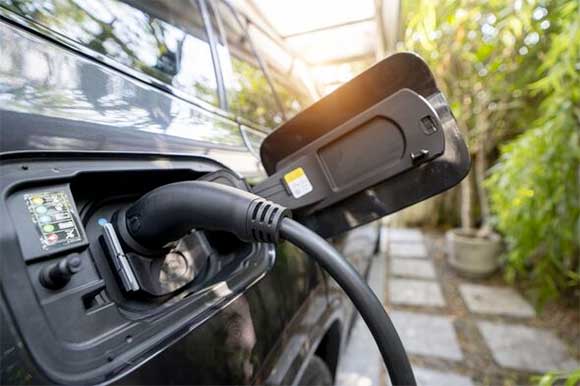As the UK nears a ban on gasoline- and diesel-powered vehicles in 2030, British government officials are concerned that the push for net-zero emissions could lead to security issues with Chinese-made all-electric vehicles.
China is expected to dominate the electric vehicle market in Britain with inexpensive imports. Ministers are afraid that the technology in these vehicles could be used by the Chinese to collect data on British citizens, or even to remotely disable the vehicles.
“If it is manufactured in a country like China, how certain can you be that it won’t be a vehicle for collecting intel and data?” a British minister told The Telegraph. “They are high-risk products. We know that China always thinks in very long terms. So, if they were providing a product that could do more than just deliver the consumer’s desire to go from A to B, why would they not be doing it?”
The concern comes as the number of new electric vehicles on Britain’s roads has jumped by 88% in the past year alone. In 2020, Britain banned the Chinese firm Huawei from its 5G networks, with a deadline to strip out all the company’s existing framework by the end of 2027.
“These are realistic risks,” Dame Priti Patel, Britain’s Home Secretary under former Prime Minister Boris Johnson, told The Telegraph. “All we have to do is look at how government tied themselves up with things such as 5G.”
Remote surveillance of cars is possible through cellular modules that control the systems of a car, processing software updates to improve the vehicle’s performance. By late 2022, Chinese companies held 64% of the global market by sales of cellular modules, and 75% by connectivity, according to a May report by the Council on Geostrategy.
Charles Parton, a senior fellow at the Royal United Services Institute and author of the report, told The Telegraph that China could use the technology to extract “massive amounts of data,” while also sending commands into cars to “operate in a malicious way.”
Under Britain’s Procurement Bill, ministers can bar Chinese companies from sensitive areas, such as providing government cars. But Parton said cellular modules from the country still posed a security risk if they remained in the vehicles of British citizens.
“Let’s suppose that I buy a car with one of these Chinese modules in it and I’ve been invited to give a talk at a defense establishment,” he said. “If that car has cameras, they could use the modules to switch on the cameras and take the data. Ultimately, you’ve got to ban any Chinese module in any vehicle, and you’d have to do it quite quickly.”
The concerns about the security risks of Chinese-made electric vehicles are a reminder of the growing importance of cybersecurity in the 21st century. As the world becomes increasingly interconnected, it is more important than ever to protect our critical infrastructure and personal data from malicious actors.




